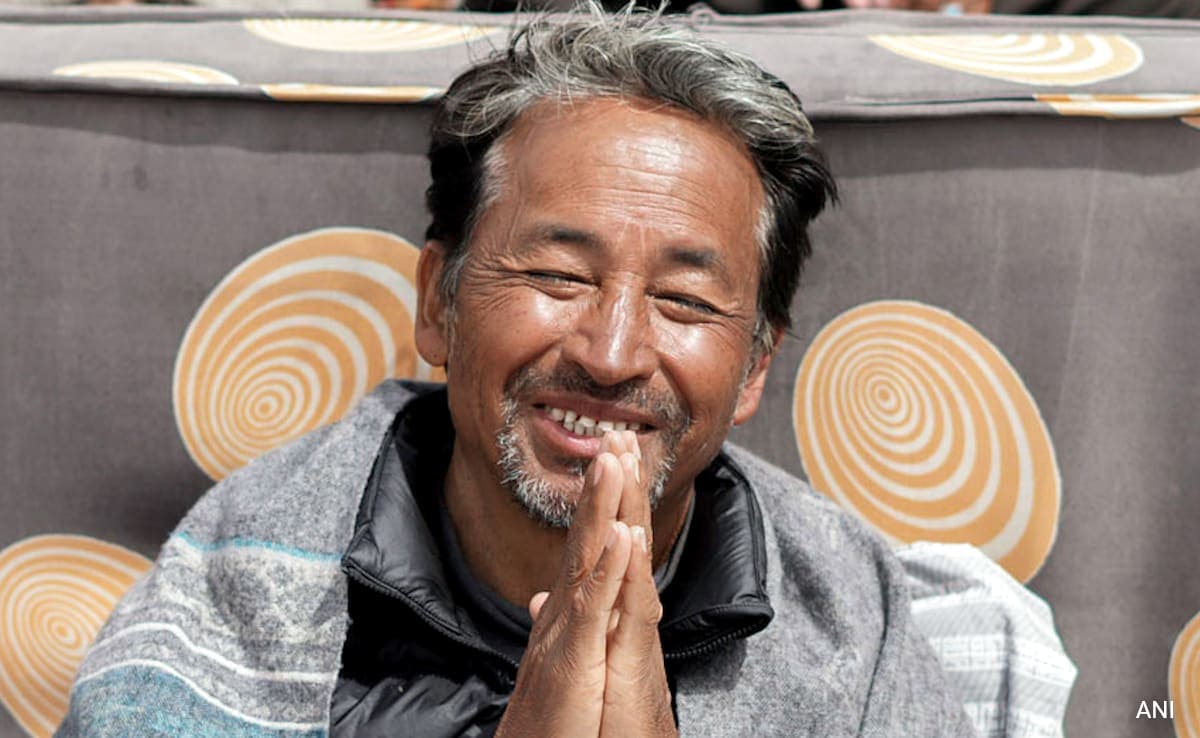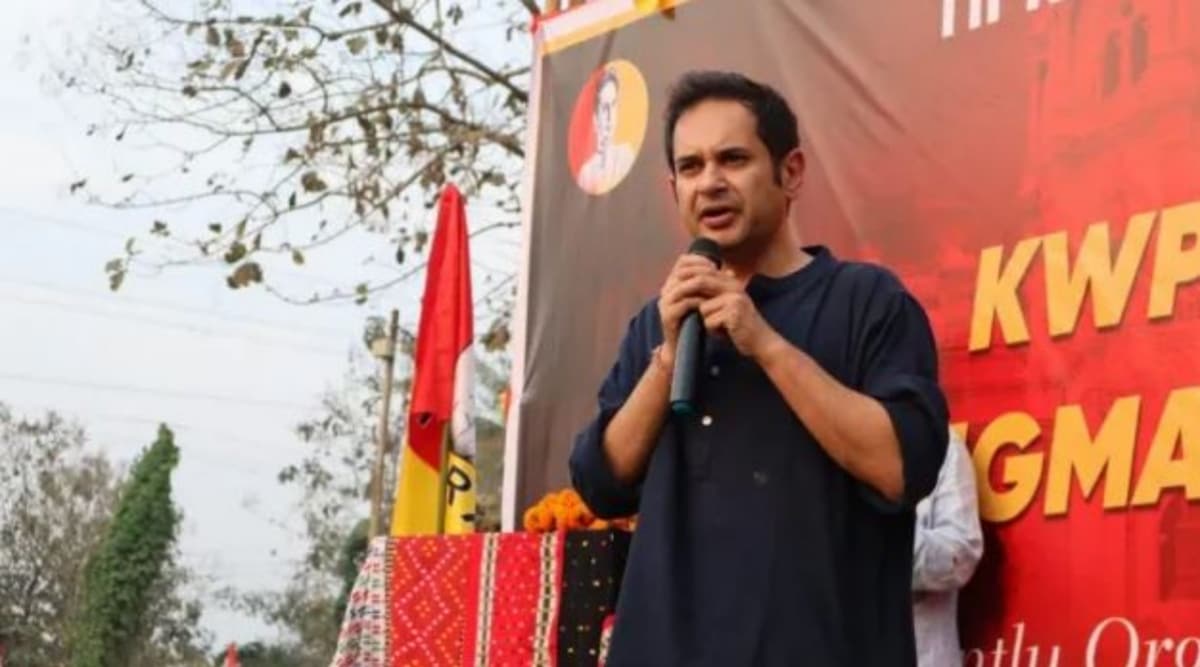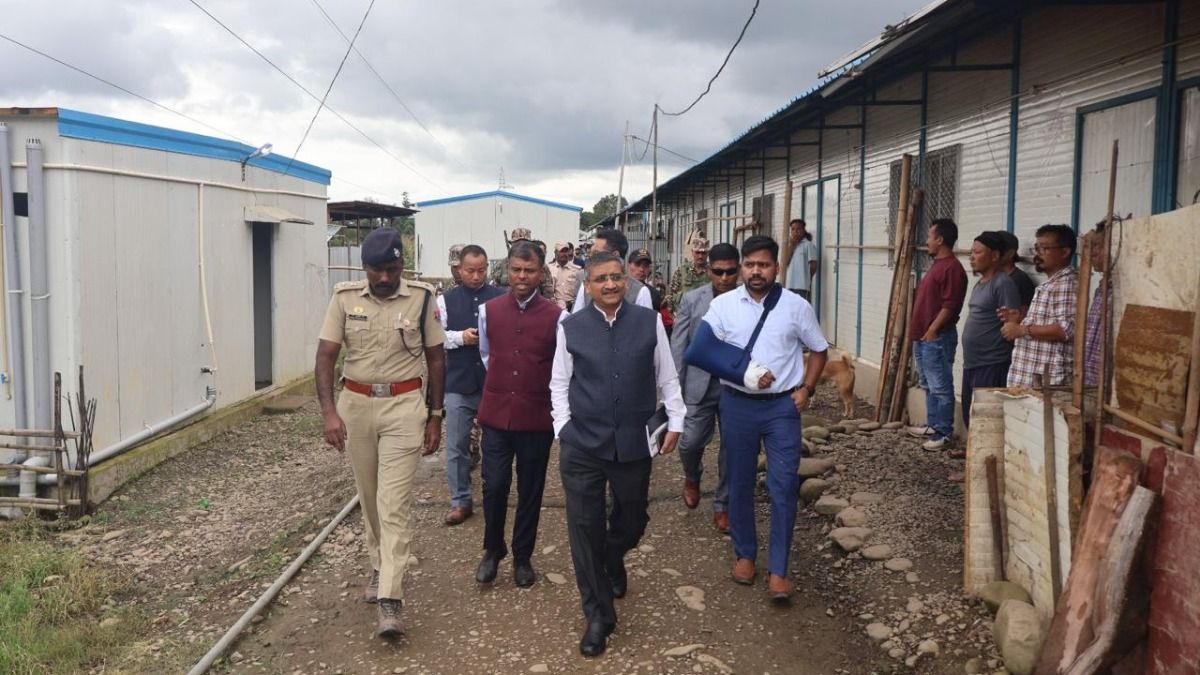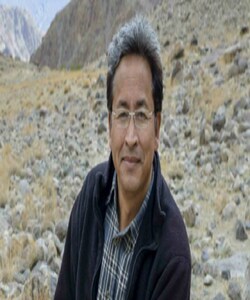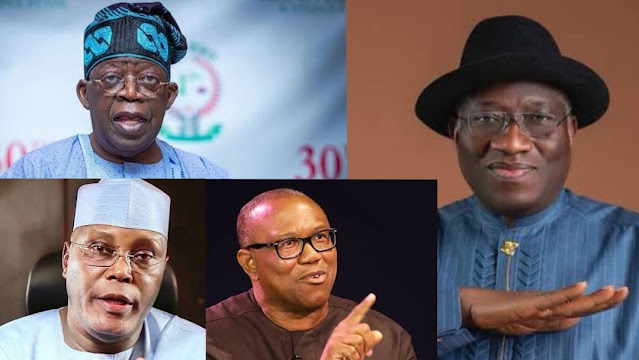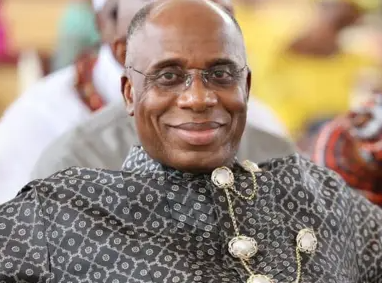Can People Be Happy Only with Development? Sonam Wangchuk on Ladakh’s Core Demands
In an interview with PTI, the Ramon Magsaysay Awardee said locals point out that “development” is there on the other side of the border in China as well, but people in Tibet are not happy. This comes as a three-day hunger strike demanding statehood and Sixth Schedule status for Ladakh began in Kargil on Saturday.
Asked about the changes in Ladakh, one of the world’s highest inhabited regions, since it became a Union Territory, Wangchuk said people agree that the pace of road development has increased, and the budget has also multiplied several times.
“I will state the facts as they are… People in Ladakh say they can see a difference in terms of development (in Ladakh), roads have been built…” However, he also added, “Development is there in China as well… But are the people of Tibet happy? No, because that development is neither in their hands nor is it being done for them.”
“Is that being repeated in Ladakh? In that case, it would be a cage made of gold. There is no platform where people can come together and decide what kind of development they want. This would be someone else’s development, and this is the problem of the people of Ladakh,” he said.
Ladakh shares its eastern border with the Tibet Autonomous Region to the east, and the Leh region shares strong cultural and religious ties with Tibet.
Dissatisfaction had been brewing in Ladakh as the talks held by the Home Ministry with representatives of the Leh Apex Body (LAB) and Kargil Democratic Alliance (KDA) appeared to be stuck.
“This dialogue did not start again; it got suspended… It was supposed to happen on the 15th (July), then on the 25th, then on the 28th… So, people wanted to start the movement again to express their pain,” he said.
The hunger strike in Kargil, which started on Saturday, will conclude on August 11 with a public meeting.
“People from all walks of life will come and appeal to the government to listen to the demands of the people and to solve these problems peacefully, because it is not good for any border area to have instability there,” he said.
The climate activist stressed that the people of Ladakh have stood by the Indian Army, helping them in every possible way in every war that India has fought. However, he rued that due to the “short-sightedness” of some leaders, their demands are not receiving the attention they deserve.
“I think this is very short-sighted; some narrow-visioned leaders are doing this for the benefit of a few companies. But this will cause a lot of damage to the country, which can unfortunately affect our security,” he said.
He, however, hoped that the government would pay heed to their demands. “Our hope and prayer is that the government will understand our pain and resolve it. We do not want to come to Delhi again,” he said.
Last year, Wangchuk and other activists walked from Leh to Delhi to press for their demands. He even held an indefinite strike outside Ladakh Bhavan in the national capital.
“But… if some companies are given priority over the people of Ladakh… we will be forced to take such steps. There can be a longer hunger strike of 5-6 weeks; it’s also being said that if we have to march to Delhi from Leh ten times, we will do that,” he said.
“The world should see how difficult it is to follow Gandhi’s path,” Wangchuk added.
Ladakh, which was separated from Jammu and Kashmir and carved out into a Union Territory in 2019 after the abrogation of Article 370, has witnessed a series of protests over the last few years, with demands for safeguards under the Sixth Schedule of the Constitution and statehood being among the key demands.
A three-day hunger strike started in Kargil on Saturday, alleging delay by the Centre in holding the next round of talks concerning the demands of Ladakh.
The last meeting of the High-Powered Committee (HPC) was held in New Delhi on May 27 and was chaired by Union Minister of State for Home Nityanand Rai, in which the issues of reservation and domicile were settled.


